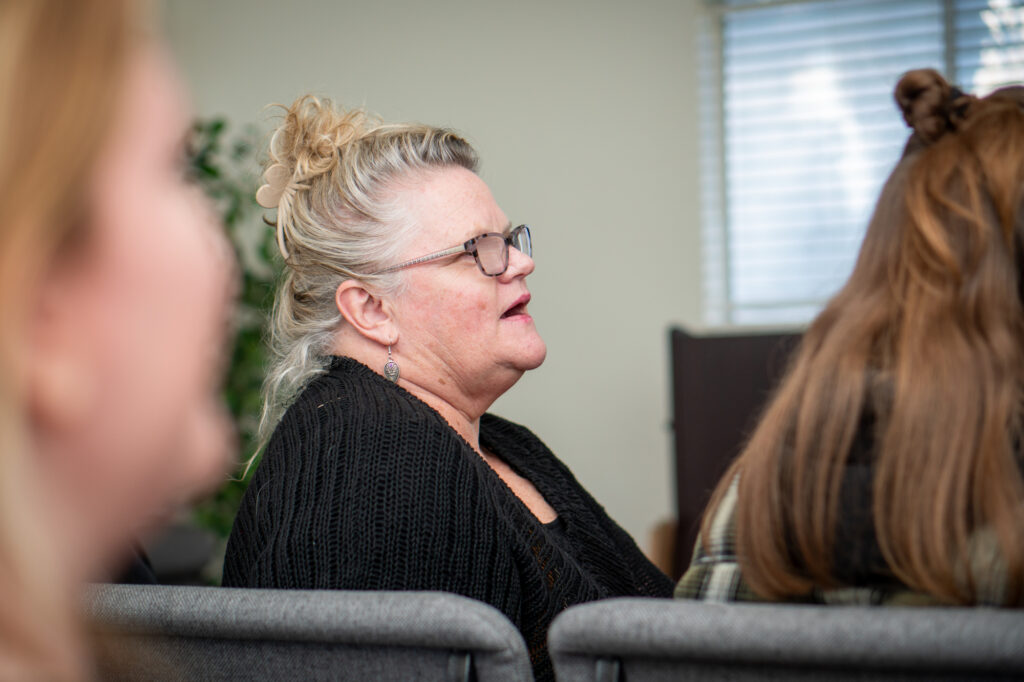24/7 Admissions | Call Now: (800) 939-6636
Navigating addiction recovery at any age can be a complex journey, but for women in their 60s, the challenges are often unique. At New Directions for Women, we understand these nuances and offer tailored support to help women in this age group find a path to lasting recovery. Below, we’ll explore the types of addiction treatment for women in their 60s, the specific needs of these women, and the compassionate care we provide to support each woman’s journey to wellness.

Addiction in women in their 60s comes with a distinct set of challenges. As they transition into retirement, experience the loss of loved ones, or cope with chronic health conditions, the emotional toll can lead to substance misuse. Additionally, older women may feel a sense of stigma or shame, believing that addiction is something they should have “outgrown.” At New Directions for Women, we create a safe and supportive environment where these concerns are addressed with sensitivity and respect.
Substance use in older women frequently involves prescription medications, alcohol, or even over-the-counter drugs. Painkillers, sedatives, and anti-anxiety medications prescribed for legitimate health concerns can sometimes lead to dependence. Alcohol, often used to cope with loneliness or grief, can also become problematic. Our team is experienced in addressing these issues with a holistic approach that considers both physical and emotional health.
At New Directions for Women, we begin with a comprehensive assessment to understand each woman’s unique situation. This includes a review of her medical history, current substance use, and any co-occurring mental health conditions. Based on this assessment, we create a personalized care plan that may include a combination of detoxification, therapy, and holistic treatments.
Detoxification is often the first step in the recovery process. For women in their 60s, this process requires careful medical supervision to manage withdrawal symptoms safely. Our team of medical professionals is skilled in providing the necessary care, ensuring that detox is as comfortable and safe as possible.
Therapy is a cornerstone of our treatment program, and we offer various modalities to address the emotional and psychological aspects of addiction. Cognitive behavioral therapy (CBT), group therapy, and individual counseling are just a few of the options available. We also provide specialized therapy for grief, loss, and other life transitions that women in their 60s may be experiencing.
We believe in treating the whole person, not just the addiction. That’s why we offer a range of holistic and complementary therapies, including yoga, meditation, art therapy, and nutritional counseling. These therapies support overall well-being and help women develop healthy coping mechanisms.
Recovery is not a journey that should be undertaken alone. At New Directions for Women, we foster a sense of community among our residents. Peer support groups, social activities, and alumni programs are integral to our approach, providing women in their 60s with the opportunity to connect with others who understand their experiences.

Family involvement is crucial in the recovery process, especially for older women who may rely on their family for emotional and practical support. We offer family therapy sessions to help rebuild and strengthen these relationships, ensuring that everyone is on the same page regarding the recovery process.
The transition from treatment back to everyday life can be challenging. Our aftercare program is designed to provide ongoing support, ensuring that women have the resources and tools they need to maintain their sobriety. This may include continued therapy, regular check-ins with our team, and participation in support groups.
Our commitment to our residents doesn’t end when they leave our facility. Through our alumni programs, we offer continuous care and support, helping women stay connected to the recovery community and access resources whenever they need them. We also provide educational workshops and social events to keep our alumni engaged and empowered.
At New Directions for Women, we understand the unique needs of women in their 60s who are seeking recovery from addiction. Our compassionate, tailored approach ensures that each woman receives the care and support she needs to reclaim her life. Whether it’s through medical supervision during detox, therapeutic interventions, or ongoing aftercare, we are here to guide women every step of the way. If you or a loved one is struggling with addiction, know that help is available, and a fulfilling life in recovery is possible. Reach out today to get started.
Absolutely not. It’s never too late to seek help for addiction. Many women in their 60s successfully enter recovery and go on to lead fulfilling, sober lives. Age should not be a barrier to getting the care you need.
Common signs of drug addiction in women in their 60s include sudden changes in behavior, such as increased secrecy or withdrawal from social activities, and physical symptoms like unexplained weight loss, fatigue, or poor personal hygiene. Cognitive changes, such as memory problems, confusion, or difficulty concentrating, may also be evident. Additionally, they might exhibit frequent doctor visits or prescription refills and an increased reliance on medications.
If you find yourself taking more medication than prescribed, using it in a way not intended by your doctor, or experiencing withdrawal symptoms when you try to stop, it may indicate an addiction. Consulting with a healthcare professional can help you determine if treatment is necessary.
Managing the fear of relapse is a common concern. Developing a strong support network, continuing with therapy, and participating in aftercare programs can significantly reduce the risk of relapse. Learning and practicing healthy coping mechanisms is also essential.
Most rehab centers allow residents to bring personal items like clothing, toiletries, and comforting objects such as books or family photos. It’s recommended to check with the facility beforehand to understand any restrictions or guidelines.
The length of drug and alcohol addiction rehab for women in their 60s can vary depending on individual needs and the severity of the addiction. Programs can range from 30 days to several months. The team at New Directions for Women will work with you to determine the most appropriate length of stay for your recovery.
2607 Willo Lane
Costa Mesa, CA 92627
(800) 939-6636
2280 University Dr.
Newport Beach, CA 92660
(800) 939-6636